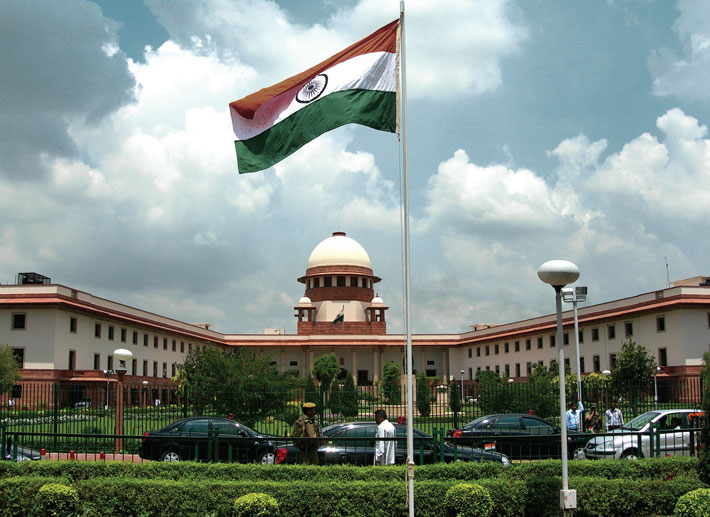Supreme Court Asserts its Authority: ‘No Court Can Go Against Higher Courts,’ Scolds High Court over Rape Survivor Ruling

Supreme Court Asserts its Authority: ‘No Court Can Go Against Higher Courts,’ Scolds High Court over Rape Survivor Ruling
A big legal clash happened when the Supreme Court, the topmost legal body in the country, strongly told off a High Court for not following its rules. The Supreme Court said very clearly that no court can make decisions that go against what a higher court has decided. This happened because the High Court had made a decision about a rape survivor’s case that seemed to go against what the Supreme Court had said.
The Supreme Court has a lot of power because it is at the very top of the legal system. Other courts have to follow its decisions. This helps keep things fair and makes sure that the same rules are followed everywhere. When the Supreme Court scolded the High Court, it was saying that all courts need to respect its authority and not do things that are not allowed.
The Main Rule: Higher Courts’ Decisions Matter
This big argument is about something called “hierarchy.” Hierarchy means there is a certain order, like in a pyramid. The Supreme Court is at the highest point, and then there are lower courts under it. When a higher court makes a decision, the lower courts have to listen to it and follow it. This is a very important rule that helps keep things steady and fair.

The argument started when the High Court, which only has power in a certain area, made a decision. This decision seemed to go against what the Supreme Court had said before. The case was about a person who survived a terrible incident of rape. The High Court’s decision looked like it was trying to help the survivor, but it seemed like it was doing something that only the Supreme Court should do.
Supreme Court’s Power is Unchanging
The Supreme Court didn’t waste time in showing its power. It said in a strong way that its power as the biggest court cannot be ignored. This wasn’t just the Supreme Court wanting to feel important – it was reminding everyone that there are rules that have to be followed.
In the legal system, the Supreme Court is like a parent. Its decisions are like rules that all other courts have to follow. This is very important so that everyone knows what to expect and what’s right. The Supreme Court was not happy with the High Court’s decision because it looked like the High Court was forgetting this rule.
The Very Important Rule: Sticking to What’s Been Decided Before
One really important rule in the legal world is called “stare decisis.” It means that courts have to stick to what higher courts have already decided. This is like following a map – if someone has already found the right way, you shouldn’t go a different way. This helps everyone know what to expect and makes sure the same rules are used all over.

The Supreme Court, when it told off the High Court, was also reminding everyone about this important rule. It was saying that when a higher court decides something, lower courts need to agree and follow it. This is very important so that there’s no confusion and everyone gets treated fairly.
Is the High Court Being Too Active?
People are talking about the High Court’s decision and wondering if it was trying to do too much. Sometimes, courts try to do things that are not exactly their job. This is called “judicial activism.” It’s like a referee in a soccer game suddenly wanting to play instead of just watching. It can be good to want to help, but it’s also important to know the limits.
The Supreme Court wasn’t just showing its power; it was saying that courts should only do their own job. Courts are not supposed to make new rules – they are just supposed to follow the ones already made. By sticking to the rules and remembering the hierarchy, courts can help keep things fair and equal.
Keeping Justice Strong
This whole argument is really about making sure justice stays strong. A good legal system is one where people trust it to be fair. If courts start doing whatever they want, it can make people lose trust in the legal system. When justice is delayed, or when courts don’t follow the right rules, it’s not fair to the people involved.
Justice should not only be done; it should also be seen to be done. This means that justice should not only happen but should also look right. When people believe that courts are fair and follow the right rules, they will trust the legal system more.
What Happens Now?
As everyone talks about this big argument between the Supreme Court and the High Court, it’s important to remember that this is a chance for learning. The legal system has rules for a reason – to make sure things are fair. This argument shows that everyone needs to follow the rules and not do things that they’re not supposed to.
This is also a reminder that communication is key. If a lower court thinks that a higher court’s decision needs to be changed, there are proper ways to talk about it. Courts should work together to find the best way to do things.

To sum up, the recent fight between the Supreme Court and the High Court is a clear reminder of how important it is to have a strong legal system. The Supreme Court is not just scolding; it’s making sure that everyone knows the rules and follows them. This is not just about who has more power; it’s about making sure justice is always served the right way.




